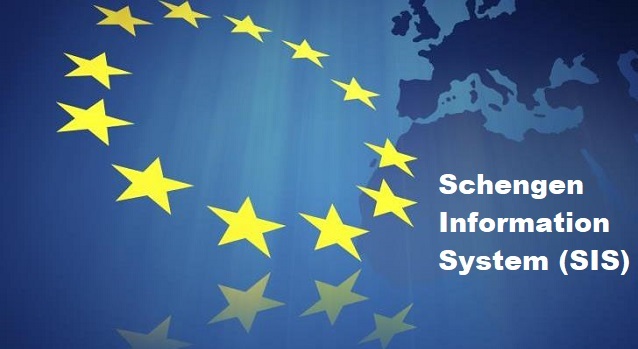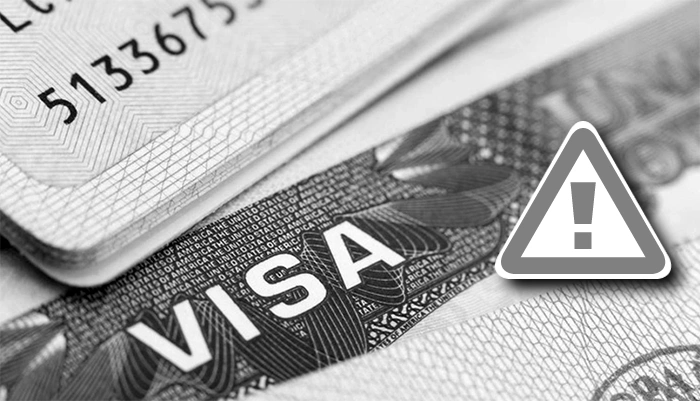Schengen Information System (SIS) and Deletion of Alerts
At Human Rights Lawyer, we offer expert legal support for individuals seeking to manage or delete alerts in the Schengen Information System (SIS). As one of the largest information-sharing databases in Europe, SIS is used by authorities to issue alerts related to criminal investigations, missing persons, and immigration matters.
 SIS Alerts Deletion
SIS Alerts Deletion
In a world where crime knows no borders, the SIS Schengen stands as a testament to Europe’s commitment to collective safety. It’s not just about vigilance; it’s about ensuring a judicial cooperation and unified approach to security that accommodates the freedom of movement so many cherish. However, the reality is that while it helps protect innocent lives, it can also inadvertently affect those caught in its web of alerts.
What is SIS?
The Schengen Information System (SIS) is an essential tool for maintaining security and facilitating cooperation among countries within the Schengen Area. Created in 2001, with help of European Parliament, central SIS serves as a central system that enables national authorities of member states and their operational management to share critical information regarding data subjects and objects that may pose a security threat or are involved in criminal activities, it may also be related to vulnerable person member state seek.
Purpose and Scope
The primary purpose of SIS II is to enhance internal borders security and law enforcement across the Schengen Area. It allows states to issue consult alerts about individuals or entities that need to be monitored, apprehended, or located. The system is designed to support competent national authorities, border guards, police forces, data protection control agencies (e.g. European data protection supervisor), and judicial authorities in their efforts to combat cross-border crime, human trafficking, terrorism, and other serious offenses.
SIS covers a broad scope of alerts, including those related to missing persons, suspected criminals, stolen vehicles, and lost documents. By providing real-time access to critical information, SIS enhances the ability of authorities to respond promptly to potential threats.
Role in Maintaining Security
SIS plays a crucial role in maintaining security by enabling seamless cooperation among member states. When an alert is issued, it can be accessed by law enforcement agencies across all Schengen countries. This interconnectedness ensures that individuals who pose a risk can be identified and apprehended swiftly, regardless of where they attempt to cross borders.
Moreover, SIS fosters a sense of collective responsibility among member states. Countries are encouraged to collaborate and share information, thus creating a more robust framework for addressing security challenges that transcend national boundaries.
How Does SIS Work?
The operational mechanics of the Schengen Information System involve various technical processes and protocols that ensure efficient data management and sharing among member states.
Technical Aspects
At its core, SIS operates as a centralized database that stores information related to alerts. The system uses advanced encryption and security protocols to protect sensitive data while allowing authorized personnel to access it. Each alert is assigned a unique identifier that facilitates tracking and management.
Data entered into SIS is categorized based on the type of alert being issued. This categorization ensures that relevant authorities can quickly locate the necessary information when needed.
Operational Aspects
Alerts within SIS are generated through various means, including national law enforcement agencies, border control authorities, and judicial bodies. When a potential threat is identified—be it an individual involved in criminal activities or a missing person—an alert is created and entered into the system.
Once an alert is issued, it is disseminated to all Schengen countries. Authorized personnel can then access the alert using secure terminals at border checkpoints or police stations. When an individual flagged by an SIS alert attempts to cross a border or is stopped by law enforcement, the alert triggers an immediate response from authorities.
The operational efficiency of SIS relies heavily on accurate data entry and timely updates. Member states are responsible for ensuring that alerts are current and reflect any changes in circumstances, such as the resolution of a case or the removal of an alert.
Who Can Be Targeted by Schengen Information System Alerts?
SIS alerts can target various individuals or entities based on specific criteria established by member states. Understanding who can be flagged by these alerts is essential for grasping the implications of being listed in the system.
Types of Individuals or Entities Targeted
There are different alert categories, which can be issued. This diversification of data is relevant since it helps authorities to identify how exactly they should act.
- Suspected Criminals: Individuals involved in serious crimes such as drug trafficking, human trafficking, or terrorism can be flagged in SIS. This allows law enforcement agencies across the Schengen associated countries and their national data protection authorities to monitor their movements and apprehend them if necessary. It also allows requests of access and access data from other countries.
- Wanted or missing persons: Alerts can also be issued for individuals reported missing, particularly minors or vulnerable adults. This helps authorities locate vulnerable persons quickly and protect vulnerable persons. It helps national police find unknown wanted persons quickly.
- Individuals Deemed a Security Threat: People considered a threat to public safety or national system may be targeted by SIS alerts. This includes individuals with known affiliations to extremist groups or those suspected of planning criminal activities.
- Stolen Vehicles and Objects: Alerts can extend to stolen vehicles, art, or other valuable items. This enables authorities to recover stolen property and prevent further criminal activities.
- Lost Documents: Individuals who lose important documents such as passports or identity cards may also be flagged in SIS to prevent identity theft or fraudulent use.
If you believe you may be affected by an SIS alert or want to understand your rights better, consider seeking legal advice.
Types of Alerts in the SIS
The Schengen Information System categorizes alerts into several types based on the nature of the information being shared. Each type carries specific implications for the targeted individual or entity.
Categories of Alerts
- Person Alerts: These alerts are issued for individuals who are wanted for prosecution, who are under European Arrest Warrant (EAW), have been convicted of serious crimes, or are missing persons. The implications include potential arrest upon identification by border management of EU countries and third country nationals, and increased scrutiny during border crossings.
- Vehicle Alerts: Alerts related to vehicles typically involve stolen cars or those used in criminal activities. If a flagged vehicle is encountered by law enforcement, it can be seized, and further investigation initiated.
- Document Alerts: These alerts pertain to lost or stolen documents such as passports or identification cards. Individuals attempting to use these documents may face legal consequences.
- Object Alerts: This category includes alerts for stolen items such as art pieces or valuable artifacts. Authorities can take action to recover these items when they are identified.
- Missing Persons Alerts: Issued primarily for minors or vulnerable individuals, these alerts aim to locate missing persons swiftly. The implications for those flagged under this category often involve heightened efforts from law enforcement agencies to ensure their safety.
Each type of alert has legal ramifications for the individuals involved and can significantly impact their personal and professional lives.
Procedures for Deleting SIS Alerts
While being listed in the Schengen Information System can have serious consequences, there are legal avenues available for contesting or deleting an alert. Understanding these procedures is crucial for those who believe they have been wrongfully flagged.
Steps for Deletion
- Legal Grounds: To request deletion of an SIS alert, you must establish valid legal grounds. Common grounds include wrongful listing due to errors in data entry, lack of evidence supporting the alert, or changes in circumstances that negate the need for the alert.
- Documentation: Gather necessary documentation that supports your request for deletion. This may include court rulings, police reports, or other relevant evidence demonstrating your case.
- Submission Process: The request must be submitted to the relevant national authority responsible for managing SIS alerts in your country. This could be a police department or judicial authority.
- Timeline: The timeline for processing deletion requests can vary depending on the complexity of the case and the specific procedures followed by each member state. Generally, you can expect a response within a few weeks to several months.
- Legal Assistance: Engaging legal assistance can significantly enhance your chances of successfully contesting an SIS alert. A knowledgeable lawyer can guide you through the process and help ensure that your rights are protected throughout.
Seeking a Lawyer for SIS Alert Removal?
Navigating the complex legal processes involved in removing an SIS alert can be daunting without proper guidance. Our firm specializes in dealing with SIS alerts and has extensive experience assisting clients through this intricate landscape. We can help you to delete data from the Schengen information system SIS, we also work with competent authorities within the European Union to obtain information about your case and solve it quickly.
How Our Firm Can Assist You
When faced with legal challenges, having the right support can make all the difference. At our firm, we specialize in providing tailored legal solutions designed to meet your unique needs.
- Expertise in SIS Regulations: Our legal team is well-versed in the regulations governing SIS alerts and understands the nuances involved in contesting them.
- Personalized Legal Strategy: We will work closely with you to develop a tailored legal strategy that addresses your unique circumstances and maximizes your chances of success.
- Comprehensive Documentation Support: Our firm will assist you in gathering and preparing all necessary documentation required for your deletion request, ensuring everything is in order before submission.
- Representation Throughout the Process: We will represent you throughout the entire process, communicating with relevant authorities on your behalf and keeping you informed every step of the way.
- Protection of Your Rights: Our primary goal is to protect your rights and interests during this challenging time. We will advocate fiercely for you to achieve a favorable outcome.
If you believe you have been wrongfully flagged in the Schengen Information System and wish to explore your options for removal, contact us today for a consultation. Let our expertise work for you as we navigate this complex legal terrain together!



